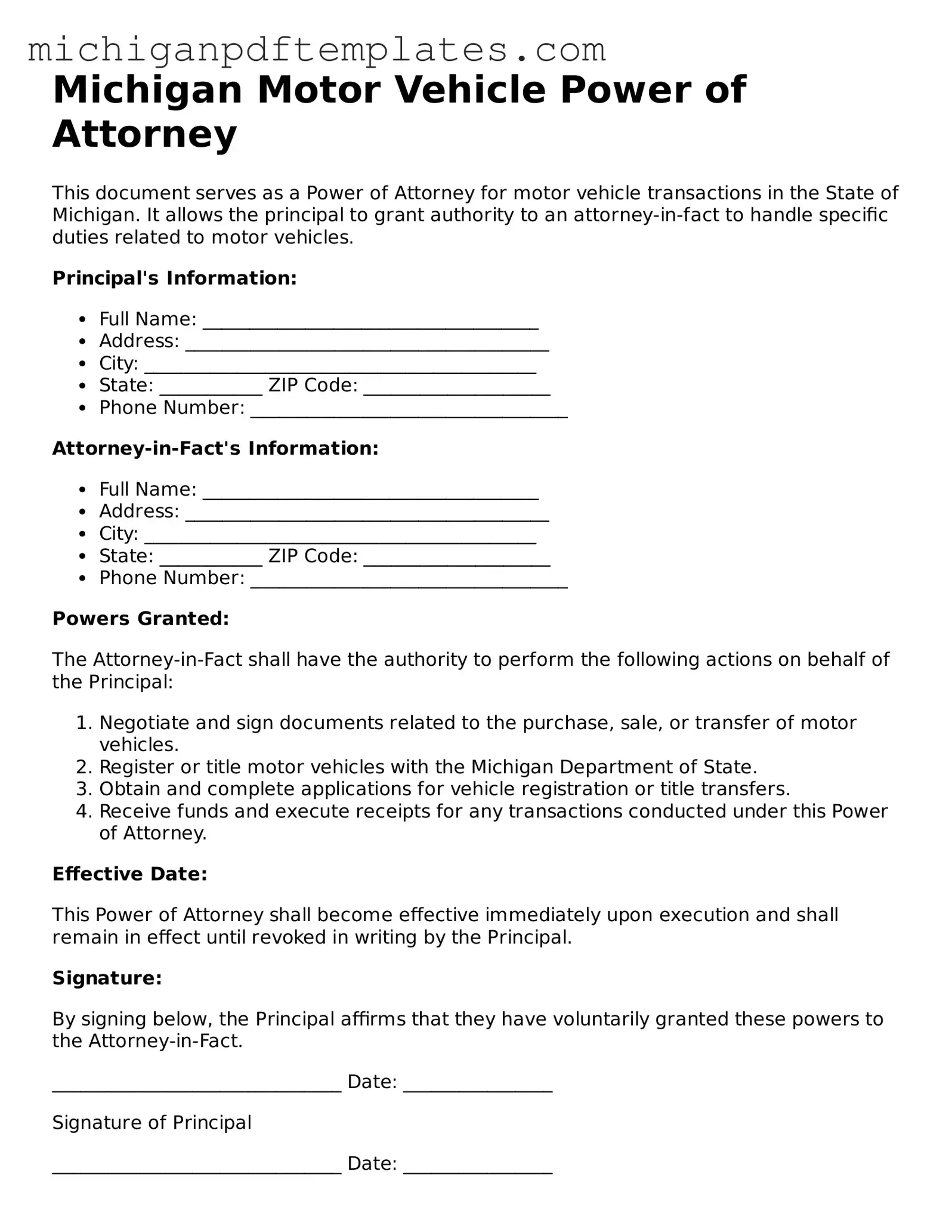Legal Michigan Motor Vehicle Power of Attorney Template
The Michigan Motor Vehicle Power of Attorney form allows an individual to designate another person to handle specific vehicle-related transactions on their behalf. This legal document is essential for those who may be unable to manage their vehicle affairs due to various reasons, such as being out of state or incapacitated. To ensure that your vehicle transactions are taken care of, consider filling out the form by clicking the button below.
Get Your Form Now

Legal Michigan Motor Vehicle Power of Attorney Template
Get Your Form Now

Get Your Form Now
or
▼ PDF Form
Finish this form quickly and move on
Fill in and complete Motor Vehicle Power of Attorney online quickly.